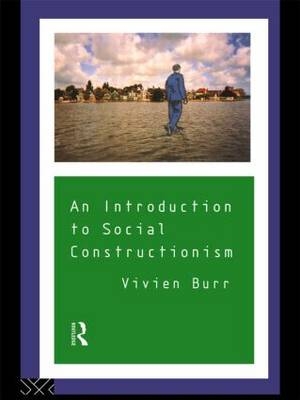
An Introduction to Social Constructionism
Seiten
1995
Routledge (Verlag)
978-0-415-10405-0 (ISBN)
Routledge (Verlag)
978-0-415-10405-0 (ISBN)
- Titel erscheint in neuer Auflage
- Artikel merken
Zu diesem Artikel existiert eine Nachauflage
An invaluable, clear guide to social constructionism for all perplexed students who want to begin to understand this difficult area.
Introduction to Social Constructionism is a readable and critical account of social constructionism for students new to the field. Focusing on the challenge to psychology that social constructionism poses, Vivien Burr examines the notion of 'personality' to illustrate the rejection of essentialism by social constructionists. This questions psychology's traditional understanding of the person. She then shows how the study of language can be used as a focus for our understanding of human behaviour and experience. This is continued by examining 'discourses' and their role in constructing social phenomena, and the relationship between discourse and power. However, the problems associated with these analyses are also clearly outlined. Many people believe that one of the aims of social science should be to bring about social change. Vivien Burr analyses what possibilities there might be for change in social constructionist accounts. She also addresses what social constructionism means in practice to research in the social sciences, and includes some guidelines on doing discourse analysis.
Introduction to Social Constructionism is an invaluable and clear guide for all perplexed students who want to begin to understand this difficult area.
Introduction to Social Constructionism is a readable and critical account of social constructionism for students new to the field. Focusing on the challenge to psychology that social constructionism poses, Vivien Burr examines the notion of 'personality' to illustrate the rejection of essentialism by social constructionists. This questions psychology's traditional understanding of the person. She then shows how the study of language can be used as a focus for our understanding of human behaviour and experience. This is continued by examining 'discourses' and their role in constructing social phenomena, and the relationship between discourse and power. However, the problems associated with these analyses are also clearly outlined. Many people believe that one of the aims of social science should be to bring about social change. Vivien Burr analyses what possibilities there might be for change in social constructionist accounts. She also addresses what social constructionism means in practice to research in the social sciences, and includes some guidelines on doing discourse analysis.
Introduction to Social Constructionism is an invaluable and clear guide for all perplexed students who want to begin to understand this difficult area.
Preface. Acknowledgements. Introduction: What is Social Constructionism? Where Do You Get Your Personality From? Does Language Affect the Way We Think? What is a Discourse? What Does it Mean to Have Power? Is There a Real World Outside Discourse? Can Individuals Change Society? What Does it Mean to be a Person? 1. The Person as Discourse-user. 2. The Self as Constructed in Language. 3. Subject Positions in Discourse. What Do Discourse Analysts Do? Glossary. Bibliography. Name Index. Subject Index.
| Erscheint lt. Verlag | 11.5.1995 |
|---|---|
| Verlagsort | London |
| Sprache | englisch |
| Maße | 138 x 216 mm |
| Gewicht | 249 g |
| Themenwelt | Geisteswissenschaften ► Psychologie ► Sozialpsychologie |
| Geisteswissenschaften ► Psychologie ► Verhaltenstherapie | |
| Sozialwissenschaften ► Soziologie ► Empirische Sozialforschung | |
| ISBN-10 | 0-415-10405-X / 041510405X |
| ISBN-13 | 978-0-415-10405-0 / 9780415104050 |
| Zustand | Neuware |
| Informationen gemäß Produktsicherheitsverordnung (GPSR) | |
| Haben Sie eine Frage zum Produkt? |
Mehr entdecken
aus dem Bereich
aus dem Bereich
Buch | Softcover (2024)
Heyne (Verlag)
CHF 16,80



